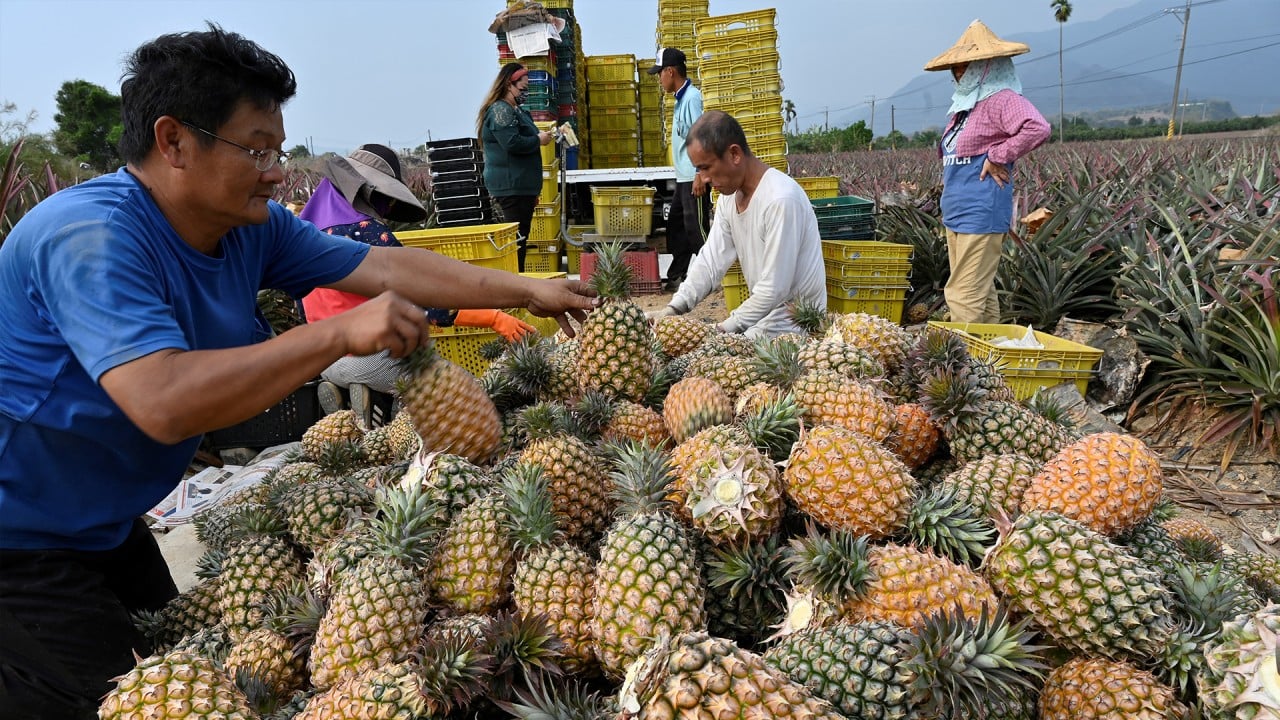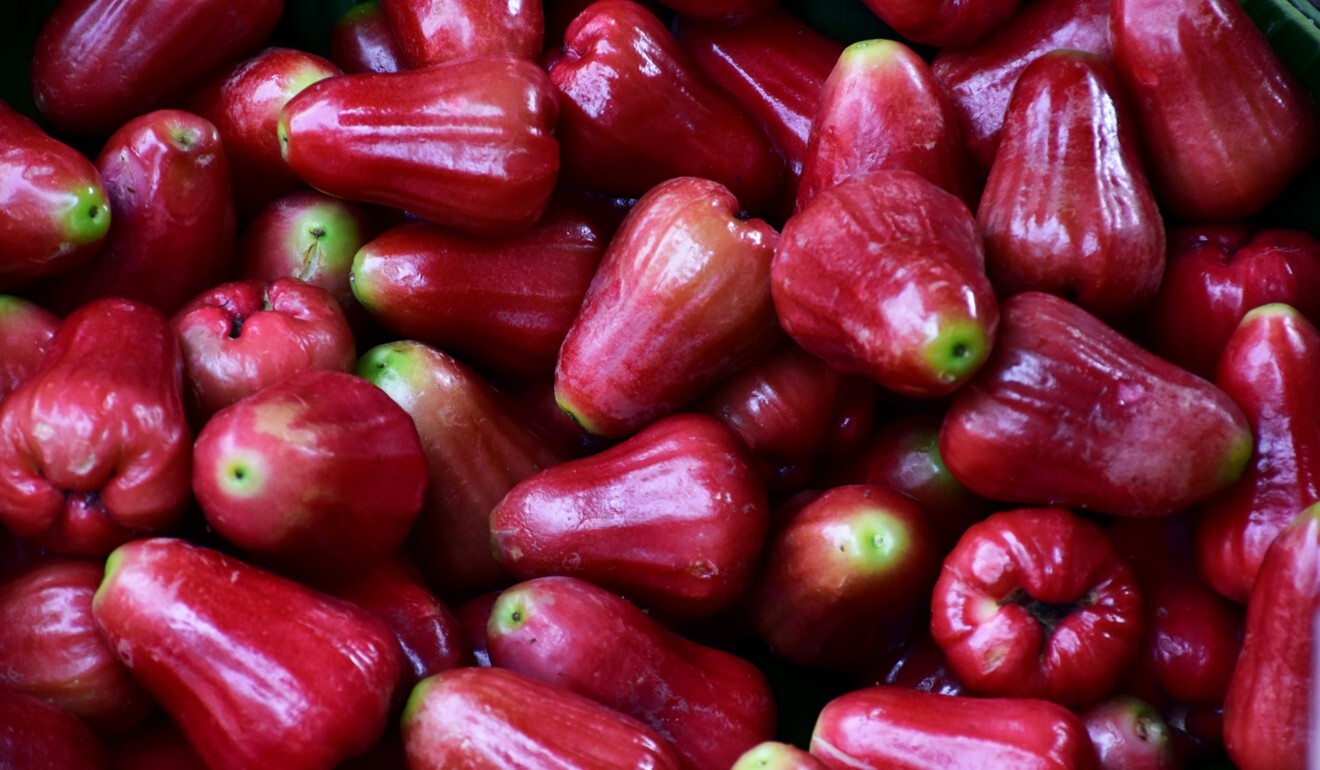
Mainland China bans Taiwan wax and sugar apple imports as cross-strait relations continue to worsen
- Beijing says plant pests have been found in fruits shipped from Taiwan, but the island’s authorities say no proof was provided
- The ban follows a similar block on pineapple exports earlier this year as the mainland seeks to keep up the pressure on Taipei
The General Administration of Customs in China said in a notice that Planococcus minor, a bug that feeds on a wide variety of agricultural crops and plants, has been found on sugar and wax apples from Taiwan “on multiple occasions” this year.
Agriculture Minister Chen Chi-chung said mainland customs informed Taipei of the import ban on Sunday morning without any “scientific proof” and complained the ban does not “comply with international rules”.
“When they [mainland China] banned our pineapples six months ago, we predicted the same would happen again,” Chen told a press conference. “We still haven’t heard anything on the [evidence for banning] our pineapples. We cannot accept this.”
Beijing launches drills aimed at Taiwan as US warship transits strait
The banning of wax and sugar apples is significant for Taiwan’s fruit exports. According to data from the Council of Agriculture, more than 90 per cent of these crops were exported to mainland China last year.
Chen said the Taiwanese authorities would spend up to NT$1 billion (US$36 million) to help protect farmers’ earnings by finding overseas buyers and expanding domestic sales channels.
He added that if mainland customs did not respond to Taiwan’s request for further evidence, the ministry would file a formal complaint with the World Trade Organization as Australia has done over China’s wine duties.

03:03
Mainland China’s ban on Taiwan’s pineapple exports hurts farmers despite surge in local consumption
The fruit are also popular in Hong Kong, but a spokesperson from the agriculture, fisheries and conservation department said the bug concerned was distributed widely around the world and posed no plant quarantine concern to the city.
The mainland is Taiwan’s biggest export destination for agricultural products, importing over US$1 billion worth of farm goods last year, according to data from the Council of Agriculture.
Fresh and chilled fruits made up 3.7 per cent in terms of overall value for agricultural exports.
Adam Ni, a researcher from Australian National University and co-editor of China Neican, said the latest fruit ban conforms to a pattern of Beijing increasingly using economic tools as well as diplomatic and military measures to pile on the pressure on Taiwan.
“Broadly, it just highlights how tense the situation has got,” Ni said. “Both because of cross-strait relations and, most significantly in the context of the region, US and China relations.”

Beijing regards Taiwan as a breakaway province that must be reunited with the mainland and has not renounced the use of force to do so.
Taiwan targets disenchanted central Europe in investment drive
China has criticised the three-way pact, known as Aukus, describing it as “extremely irresponsible” and “narrow-minded”.
“Trying to join the CPTPP is a way to increase its economic influence and interaction with these countries as a part of its geopolitical strategy of economic development, investment and network building in the region,” Ni added.
The key Asia-Pacific trade pact was created by the US to counter China‘s influence but former president Donald Trump pulled the US out of it in 2017.
Scott Kennedy, senior adviser and trustee chair in Chinese business and economics at the Centre for Strategic and International Studies in Washington, said China’s chance of being part of the CPTPP within the next three years is “somewhere between slim and none”.
“Beyond that, it will depend on whether the US itself is able to muster the courage to re-join and whether China decides to return to a path of domestic liberalisation and reform and international integration and cooperation,” Kennedy said.
Additional reporting by Rachel Yeo

